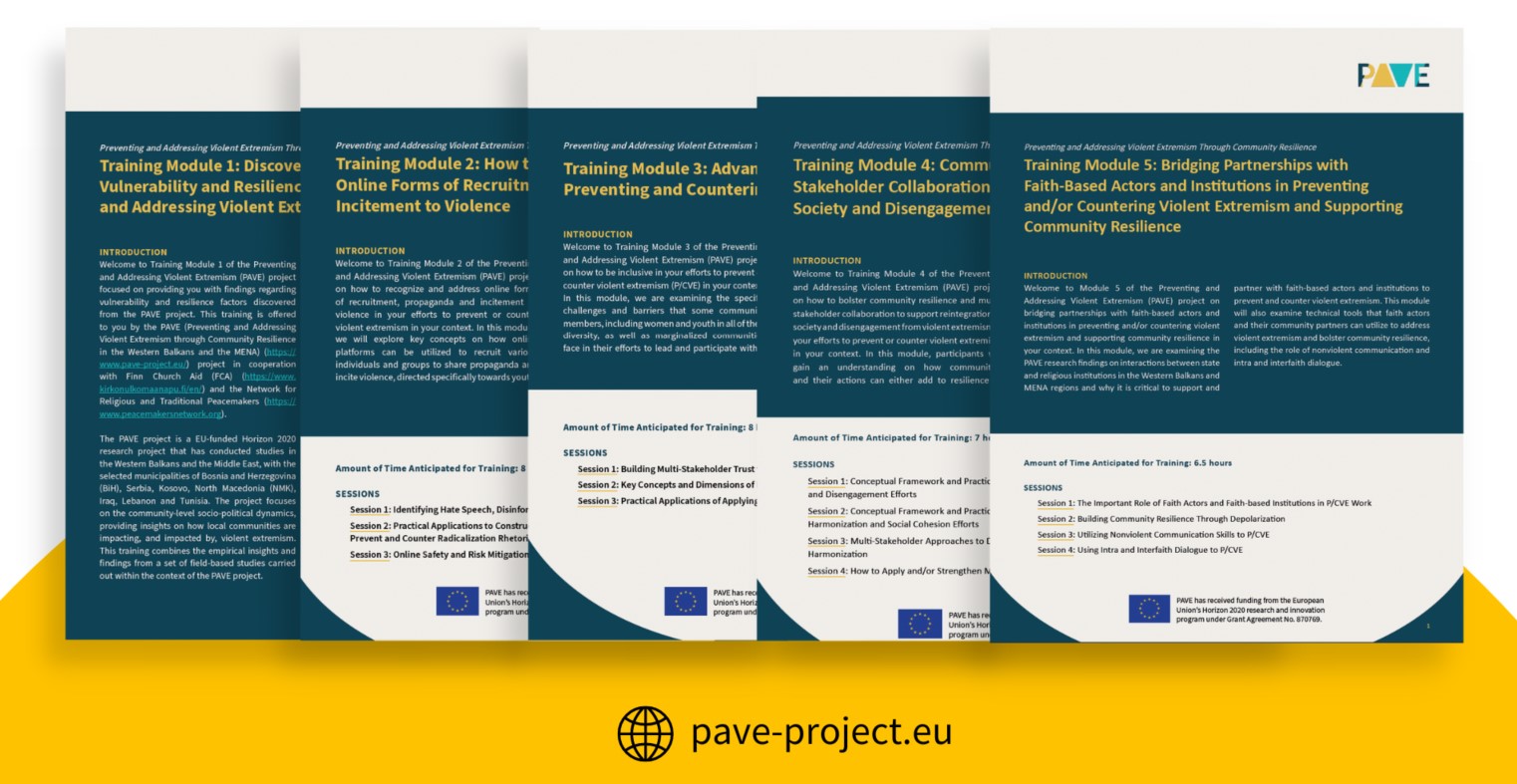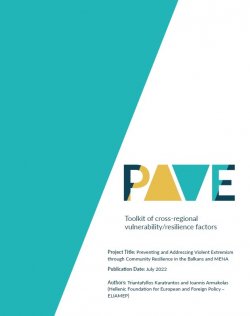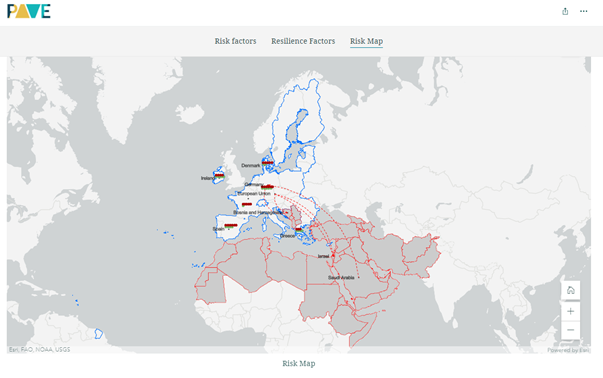Policy & Practice Outputs
Toolkit on cross-regional vulnerability/resilience factors
The toolkit is based on the interactive risk and resilience map that was developed on the basis of the research results of Work Package 6 of the PAVE project that investigated transregional (de)radicalisation dynamics between the EU and Western Balkans with a specific focus on diaspora communities. The main risk and resilience factors that were identified through this research are mapped out geographically in the risk and resilience map (as indicated below).
Responding to the identified and mapped risk and resilience factors, the toolkit provides a methodology and steps to effectively use the risk map in two ways: 1) producing risk assessments and 2) producing resilience assessments and mitigation plans. Moreover, the toolkit includes tips and suggestions for policy makers and practitioners in order to enhance their abilities for prevention politics and resilience initiatives. As part of this, the toolkit introduces risk scenarios, which enable a more effective use of risk and resilience frameworks.
Risk & Resilience Map
The Risk and Resilience Map has two main features: it visualises the risk and resilience factors towards violent extremism per-country and displays transregional connections between these. It is an interactive map that allows to zoom in on different locations and factors for risks and resilience. The ArcGIS software that the map is built on allows it to be continually expanded with new observations and factors as time passes, so that the map is not static but can live up to ongoing developments and new insights.
Open Access Training Modules
PAVE developed five online and offline training modules for practitioners and local communities to strengthen their ability to promote and support inclusive local multi-stakeholder partnerships in preventing and addressing violent extremism, with group activity exercises, tools and opportunities for self-reflection. The training modules increase understanding and capacity for creating multi-stakeholder partnerships between civil society, religious actors and government officials to increase community resilience against violent extremism.

The modules include:
- Discovering Community Vulnerability and Resilience Factors in Preventing and Addressing Violent Extremism
- How to Recognize and Address Online Forms of Recruitment, Propaganda and Incitement to Violence
- How to Advance Inclusivity Within Preventing and Countering Violent Extremism Community-based Initiatives
- Community Resilience and Multi-Stakeholder Collaboration to Support Reintegration to Society and Disengagement from Violent Extremism
- Bridging Partnerships with Faith-Based Actors and Institutions in Preventing and/or Countering Violent Extremism and Supporting Community Resilience
Developed by PAVE project partner Finn Church Aid / the Network for Religious and Traditional Peacemakers, the training modules increase understanding and capacity for creating multi-stakeholder partnerships between civil society, religious actors and government officials to increase community resilience against violent extremism.
Expert trainers are featured throughout each module to help guide participants through the topic with practical guidance and knowledge from the field. Click here to watch all the expert trainer videos.
The thematic focus areas of each module were derived from identified capacity-building needs by local stakeholders in the Western Balkans and Middle East North Africa (MENA) Regions. Participatory consultations, interviews and a validation workshop with policymakers, faith actors and civil society in the MENA and Western Balkans were held throughout 2021 and 2022 to understand the capacity-building needs and interests related to preventing violent extremism through local multi-stakeholder partnerships, with the purpose of developing capacity-building tools and training modules.
How to Use the Modules:
Each module is designed in an online format for individual users, or an in-person group format, that is designed to be led by an experienced facilitator. The format of the in-person training module provides the experienced facilitator with a menu of design options to contextualize for his or her specific context and needs. Certificates are available following the completion of each online or offline module.
Click here to access all in-person and online training modules.

